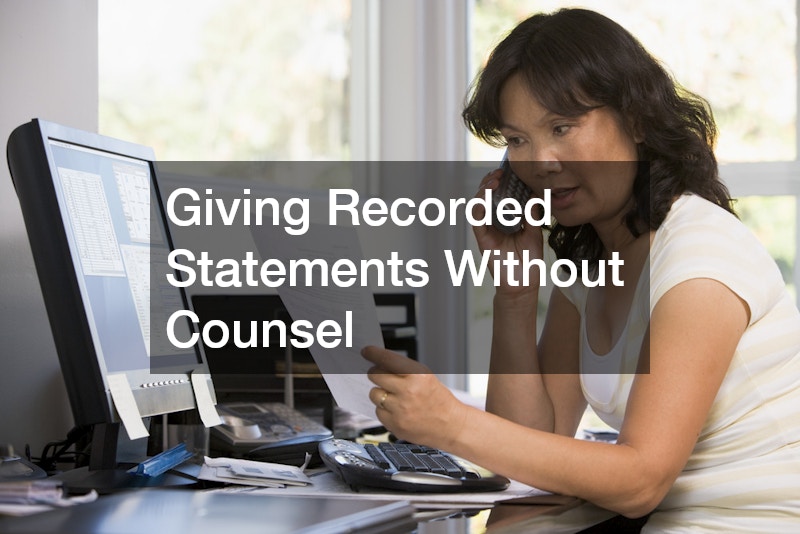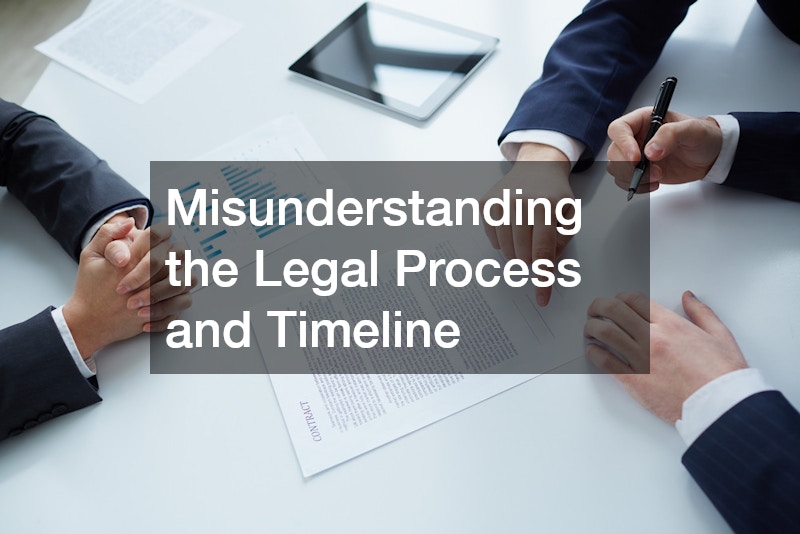Filing a bodily injury lawsuit can be a critical step in recovering compensation after an accident, but the path to justice is often more complex than it seems. Between dealing with insurance companies, navigating medical treatments, and understanding legal processes, it’s easy to make mistakes that could hurt your case. Many people approach these lawsuits without a full understanding of what’s at stake or how certain actions — or inactions — might be used against them later. A successful outcome often depends not just on having a valid claim but also on avoiding common pitfalls that can undermine your credibility, reduce your compensation, or even result in your case being dismissed.
One of the most effective ways to strengthen your position is by educating yourself on what not to do. From the moment an injury occurs, every decision you make has the potential to impact your lawsuit. The good news is that most of the mistakes people make during a bodily injury lawsuit are preventable with the right knowledge and guidance. This blog outlines those common errors and offers insight into how you can sidestep them, increasing your chances of a fair and favorable outcome.
Failing to Seek Immediate Medical Attention

When you’ve been injured, the instinct to “tough it out” or wait and see if the pain goes away can be tempting, but this delay can be detrimental to your health and your case. Seeking immediate medical attention not only protects your well-being but also creates a documented record of your injuries, which is essential for establishing a clear link between the incident and your condition. Waiting days or even hours to see a doctor may allow opposing parties to argue that your injuries weren’t serious or were unrelated to the incident.
Visiting an emergency hospital right after the injury helps ensure that every symptom and physical concern is properly documented by medical professionals. This documentation becomes key evidence in a bodily injury lawsuit, helping your legal team prove the cause, extent, and timing of your injuries. Moreover, immediate medical care demonstrates that you took the injury seriously, which can be influential in how judges, juries, and insurers perceive your case.
Delaying the Filing of Your Lawsuit
Time is not on your side when it comes to filing a lawsuit. Each state has statutes of limitations that dictate how long you have to file a bodily injury lawsuit after an accident occurs. Waiting too long can not only weaken your case by making evidence harder to gather, but it can also result in the complete loss of your legal right to seek compensation. Even when the injury seems manageable at first, it’s crucial to begin the legal process promptly to preserve your rights and access all available remedies.
Consulting a personal injury lawyer early on can help you understand the timeline that applies to your case and make sure that all necessary steps are taken before deadlines expire. A lawyer can also begin gathering important evidence, including witness statements, surveillance footage, and medical records, while they are still fresh and available. This prompt action can make a significant difference in the outcome of your bodily injury lawsuit, especially when dealing with complex liability or multiple parties.
Underestimating the Value of Your Claim
One of the most common and costly mistakes people make is assuming their case is only worth what the insurance company initially offers. The reality is that many injuries have long-term consequences that aren’t always immediately apparent. Settling too early or without fully understanding the scope of your losses can leave you responsible for costs you didn’t anticipate, such as future medical expenses or lost earning potential. Accurately valuing a claim requires a full accounting of current damages, future needs, and non-economic losses like pain and suffering.
This is why partnering with a car accident law firm can be a game-changer. Experienced legal teams have the tools and resources to assess not only immediate damages but also long-term implications, using expert testimony and financial projections when needed. With their help, you’re more likely to receive a settlement or verdict that reflects the true value of your bodily injury lawsuit. Without professional insight, you risk accepting far less than what your claim is actually worth.
Giving Recorded Statements Without Counsel

After an accident, it’s common to receive calls from insurance adjusters asking for a recorded statement. While this might seem like a routine part of the process, giving a statement without legal representation can be a serious misstep. Anything you say, even if it seems harmless, can be used against you later to deny or devalue your claim. Insurance companies are trained to ask leading questions or focus on details that minimize their liability, and without guidance, it’s easy to say something that inadvertently harms your case.
Although they primarily handle defense in criminal cases, criminal attorneys understand the critical importance of not speaking on record without legal advice — a principle that applies equally in civil litigation. Taking this same caution when involved in a bodily injury lawsuit helps protect your statements from misinterpretation or manipulation. Always consult with your legal team before making any recorded comments, no matter how informal or straightforward they may seem.
Ignoring Medical Advice or Missing Appointments
Following through with medical treatment is just as important as getting that first diagnosis. When you skip appointments or disregard your doctor’s recommendations, it sends a signal that your injuries might not be as severe as claimed. Insurance companies and defense attorneys often use gaps in treatment or noncompliance with care as evidence to dispute the legitimacy of your injuries. Maintaining a consistent medical record strengthens your case and supports the damages you’re seeking in your bodily injury lawsuit.
Even after an emergency room visit, ongoing care at a chiropractic clinic or physical therapy center may be necessary to aid in your recovery. These follow-up treatments provide a detailed record of your progress and continued discomfort, which can be critical in proving long-term impact. Ignoring these steps, even unintentionally, can weaken your claim and reduce your chances of receiving full compensation.
Posting About the Case on Social Media
Social media might feel like a safe space to vent or share updates with friends, but anything you post can be used as evidence in court. Photos, status updates, check-ins, or even comments on others’ posts can be taken out of context and used to cast doubt on the extent of your injuries or the truthfulness of your claims. Even privacy settings can’t fully protect you — once information is online, it can be screenshotted, shared, or subpoenaed by opposing legal teams.
The stakes of oversharing can be surprisingly high, and the consequences aren’t unlike the repercussions faced when mishandling sensitive information in felony charges. In both criminal and civil cases, anything you say or do publicly can have serious legal implications. When pursuing a bodily injury lawsuit, it’s best to stay off social media or strictly limit your activity. Always assume that anything you post could be shown in court and interpreted in a way that harms your credibility.
Settling Too Quickly Without Legal Guidance

Insurance companies often move fast to offer settlements, especially if they know the injured party is overwhelmed or financially stressed. These early offers are rarely fair and are often calculated to close the case for the lowest possible payout. Settling too quickly, without understanding the full extent of your injuries or how your life may be affected long-term, can leave you with insufficient resources to cover ongoing medical treatment or lost income. Once you sign, you typically can’t go back.
The consequences of premature settlements are similar to what a legal malpractice lawyer might deal with when clients are harmed by poor representation — the damage can be long-lasting and difficult to undo. Without skilled legal counsel, you may miss crucial details or fail to negotiate the compensation you deserve. For anyone pursuing a bodily injury lawsuit, patience and proper legal support are essential to securing a resolution that truly reflects the impact of the injury.
Overlooking Future Medical or Financial Needs
It’s natural to focus on the immediate aftermath of an accident, especially when you’re dealing with pain and uncertainty. However, many injuries have long-term consequences that don’t show up right away. Whether it’s recurring pain, loss of mobility, or ongoing therapy needs, failing to consider future medical costs and income losses can severely limit your ability to recover financially. Planning for the future is a critical component of any bodily injury lawsuit.
Much like a workers compensation claim that accounts for long-term disability or loss of earning capacity, personal injury cases should factor in what lies ahead. Calculations should include the cost of future surgeries, physical therapy, prescription medication, and even home or vehicle modifications. Your legal team can help assess these factors with input from medical experts and financial analysts, ensuring your claim reflects not just the injury you’ve suffered, but the life you’ll need to rebuild.
Choosing the Wrong Attorney for Your Case
Not all attorneys are created equal, and hiring the wrong one can significantly weaken your case. Some attorneys may lack experience in personal injury law, fail to communicate effectively, or simply not have the resources to go up against large insurance companies. The relationship between a client and an attorney needs to be built on trust, expertise, and dedication. When that foundation is missing, important aspects of the case can be overlooked or poorly presented, ultimately impacting the compensation you receive.
Just as you wouldn’t trust an auto repair company that doesn’t specialize in your specific vehicle make or issue, you shouldn’t trust your case to a lawyer who isn’t deeply familiar with personal injury litigation. The right attorney will know how to build a compelling case, negotiate strategically, and take your bodily injury lawsuit to trial if necessary. Choosing wisely from the start can make all the difference in the outcome of your claim.
Misunderstanding the Legal Process and Timeline

Legal proceedings can be intimidating, especially if you’ve never been involved in a lawsuit before. The unfamiliar legal jargon, formal procedures, and sheer volume of paperwork can feel overwhelming to someone without prior experience. It’s easy to assume that once a claim is filed, things will move quickly toward resolution. However, the legal system is often slow, methodical, and filled with stages that may not make immediate sense to the average person.
Many plaintiffs enter a lawsuit with the expectation that everything will unfold smoothly and swiftly, only to grow frustrated when the reality doesn’t match those assumptions. Not understanding critical stages — such as the discovery phase, where both sides exchange evidence; depositions, where witnesses are questioned under oath; or the timeline leading up to a potential trial — can lead to costly errors in judgment. Plaintiffs might accept lowball settlements simply to end the process or miss key deadlines because they didn’t realize how much preparation was required.
If you’re suffering from lingering neck pain or other ongoing symptoms, the process may feel especially drawn out, but patience and preparation are key. A knowledgeable legal team will walk you through each step and keep you informed about your options and responsibilities. Managing expectations and staying informed will help you feel more in control and less overwhelmed as you move through your bodily injury lawsuit.
Navigating a bodily injury lawsuit is more than just proving that you were hurt — it’s about making strategic decisions every step of the way to protect your rights and maximize your recovery. Whether it’s seeking prompt medical care, being cautious with your words and actions, or choosing the right legal representation, each move you make can strengthen or weaken your case. Many of the most damaging mistakes are not about what happens in court, but what happens in the weeks and months leading up to it.
By being proactive, informed, and selective in how you manage your case, you give yourself the best possible chance at receiving the compensation you deserve. The legal system can be complex and intimidating, but with the right support and mindset, it becomes much more navigable. Avoiding these common missteps not only preserves the integrity of your claim, it also empowers you to take control of your recovery, your finances, and your future.


